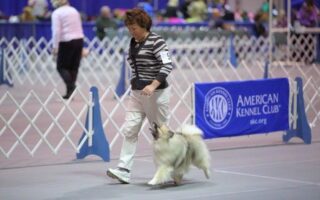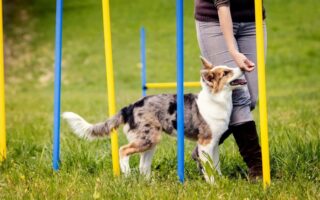Title: Unlocking Potential: The Art and Science of Retriever Training
Introduction:
In the realm of canine companionship, few breeds captivate the heart quite like retrievers. With their boundless energy, unwavering loyalty, and keen intelligence, these four-legged friends have earned their place as some of the most beloved dogs in families and on hunting grounds alike. Yet, behind their playful demeanor lies a treasure trove of potential waiting to be unlocked through proper training. Retriever training is both an art and a science, blending instinctual behaviors with structured techniques to cultivate a bond that can transcend communication barriers. Whether you’re preparing your pup for competitive obedience, agility trials, or simply seeking a well-mannered companion, understanding the foundations of retriever training is the first step toward fostering a relationship built on trust, respect, and mutual enjoyment. Join us as we explore the intricacies of this rewarding journey, offering insights and practical tips to help your retriever reach new heights.
Table of Contents
- Understanding the Retrievers Natural Instincts for Effective Training
- Key Techniques for Building Strong Retrieval Skills
- Creating a Positive Training Environment for Success
- Common Challenges in Retriever Training and How to Overcome Them
- Q&A
- Insights and Conclusions
Understanding the Retrievers Natural Instincts for Effective Training
When it comes to training retrievers, understanding their natural instincts is critical for success. Retrievers are inherently driven by their desire to retrieve, making them eager learners. This instinct is rooted in their genetics, cultivated over generations to assist hunters in fetching game. By leveraging this natural drive, trainers can create engaging and effective training sessions. Here are some key instincts to consider:
- Natural Retrieval: This instinct allows retrievers to locate and bring back objects, making them excited about fetching.
- Playfulness: Retrievers thrive in an environment that incorporates play, using toys to stimulate their desire to retrieve.
- Pack Mentality: They are social animals, often motivated by teamwork and interaction with their human companions.
Utilizing these instincts in your training approach can lead to more effective methods. It’s important to balance discipline with positive reinforcement to keep sessions fun and productive. Implementing a structured yet flexible training routine can help your retriever excel. Below is a simple table to illustrate various techniques that align with their instincts:
| Training Technique | Description |
|---|---|
| Fetch Games | Use toys to encourage retrieval in a playful setting. |
| Reward-Based Training | Offer treats or praise for successful retrieves to reinforce behavior. |
| Social Group Training | Incorporate other dogs and owners to enhance social skills and teamwork. |
Key Techniques for Building Strong Retrieval Skills
To develop an effective retrieval skill set, trainers should focus on a combination of mental and physical exercises that engage the dog’s natural instincts. Positive reinforcement is crucial; rewarding dogs for successful retrievals encourages them to repeat the behavior. Implementing short fetch games in different environments can help dogs adapt to various distractions. Additionally, mastering specific commands like “fetch,” “drop it,” and “bring back” helps create a clear communication channel between the dog and trainer, enhancing understanding and execution of tasks.
Engagement with their environment plays a significant role in a dog’s retrieval success. Incorporating obstacles or varying terrains can amplify their problem-solving skills and adaptability. Using the following techniques will further strengthen retrieval skills:
- Varied Objects: Use different types of toys or items to keep the dog interested.
- Distance Training: Gradually increase the distance of the fetch to improve focus and endurance.
- Tracking Games: Incorporate scent trails leading to hidden items to appeal to their natural hunting instincts.
| Technique | Benefit |
|---|---|
| Positive Reinforcement | Boosts motivation and encourages repeated behavior. |
| Obstacle Navigation | Enhances problem-solving and adaptability skills. |
| Varied Fetch Distances | Improves endurance and focus over time. |
Creating a Positive Training Environment for Success
Creating a supportive and engaging training atmosphere is essential for the well-being of both you and your retriever. A positive environment fosters trust, enhances learning, and strengthens the bond between you and your dog. To cultivate such an atmosphere, consider the following strategies:
- Be patient: Every dog learns at their own pace, so allow your retriever the time they need to grasp new commands and skills.
- Use positive reinforcement: Reward good behavior with treats or praise, as this encourages your retriever to repeat those actions.
- Make it fun: Incorporate playtime and enjoyable activities into your training sessions to keep your retriever engaged and excited.
- Stay consistent: Establish clear rules and commands, ensuring that everyone in the household follows the same training approach.
In addition to these strategies, creating a comfortable physical space for your dog is equally important. A well-organized training area helps your retriever focus and feel secure. Utilize the table below to ensure your environment is well-prepared:
| Environment Element | Description |
|---|---|
| Quiet Space | A distraction-free area to minimize noises and interruptions. |
| Training Tools | Have leashes, toys, and treats organized and easily accessible. |
| Comfortable Surface | A soft mat for your retriever to stand or lie on during training. |
| Time Consideration | Schedule sessions when your dog is alert and energetic. |
Common Challenges in Retriever Training and How to Overcome Them
Retriever training, while rewarding, often presents several challenges that can hinder progress. One prevalent issue is inconsistency in commands and training methods. When different family members use varying cues, it can confuse the dog, leading to mixed results. To remedy this, establish a consistent training vocabulary that everyone adheres to. Additionally, regular practice makes a significant difference; ensure that everyone is on the same page by holding periodic training sessions together. This collective effort reinforces the training and fosters a stronger bond between the retriever and its human companions.
Another common hurdle is a retriever’s high energy levels, which can lead to distractions during training sessions. This exuberance might morph into a challenge when your dog struggles to focus. To tackle this, incorporate structured exercise routines into their daily activities. A tired dog is often a more compliant learner. You can also implement shorter, more dynamic training sessions to keep your retriever engaged and interested. Consider the following tips to maintain focus during training:
| Tip | Description |
|---|---|
| Utilize High-Value Treats | Offer special rewards to keep your dog motivated. |
| Short Training Sessions | Limit sessions to 5-10 minutes to maximize attention. |
| Transition Between Activities | Alternate training types to maintain engagement. |
Q&A
Q&A on Retriever Training: A Comprehensive Guide
Q: What is retriever training, and how does it differ from other dog training?
A: Retriever training focuses specifically on teaching dogs, particularly retriever breeds like Labrador Retrievers and Golden Retrievers, to retrieve game or objects as part of hunting and sporting activities. Unlike general obedience training, which emphasizes basic commands and good behavior, retriever training hones skills such as scent identification, fetching, and delivering items to hand, often in diverse environments.
Q: Why are retriever breeds particularly suited to this type of training?
A: Retriever breeds were originally bred for their excellent retrieving instincts, strong work ethic, and friendly disposition. Their keen sense of smell, intelligence, and eagerness to please makes them exceptionally good candidates for tasks that require precise work, both in field trials and hunting scenarios.
Q: What are the fundamental skills that a retriever should learn?
A: The primary skills for a retriever include:
- Fetching: The ability to locate and bring back an object.
- Scent Recognition: Identifying and following a scent trail.
- Delivery to Hand: Bringing the retrieved item directly to a handler.
- Steadiness: Remaining calm and focused while waiting for a command.
- Blind Retrieves: Fetching items that are not visible to the dog, relying solely on scent and memory.
Q: How can I start training my retriever at home?
A: Begin with basic obedience commands to establish a solid foundation. Incorporate fun retrieval games using toys, like balls or dummies, and gradually increase difficulty by changing locations and distances. Consistency, patience, and positive reinforcement are key—offering treats and praise for successful retrieves fosters motivation and confidence.
Q: Are there specialized tools or equipment that can aid in retriever training?
A: Yes, there are various tools that can enhance the training experience. Some commonly used items include:
- Dummy Launchers: For increasing retrieval distance.
- Scent Discs: To help with scent training.
- Whistles: For vocal commands when working at a distance.
- Bumpers: These are designed for training and can simulate real game.
Q: How can I overcome challenges during training?
A: Challenges such as distractions, lack of focus, or refusal to retrieve can often be managed through a few strategies:
- Short, Engaging Sessions: Keep training sessions brief but lively, adjusting the duration based on your retriever’s attention span.
- Positive Reinforcement: Always reward efforts. If a dog struggles, break tasks down into smaller steps.
- Controlled Environments: Start training in calm areas before gradually introducing more distractions, so your dog can learn to stay focused.
Q: What role does socialization play in retriever training?
A: Socialization is crucial for retrievers, as it helps them learn to act confidently in different environments. Exposure to various people, animals, and situations can prevent behavioral issues and support better focus during training sessions. Introduce your retriever to new experiences from an early age to build a well-rounded and adaptable companion.
Q: How can I maintain my retriever’s skills over time?
A: To keep your retriever sharp, incorporate regular training sessions along with fetching games in outdoor settings. Mixing retrieval tasks with obedience training and agility exercises can create a well-rounded routine. Consistency and fun are essential to ensure that your dog remains engaged and willing to learn.
Q: When is it appropriate to seek professional help with training?
A: If you encounter persistent challenges, lack confidence in your training methods, or simply wish to advance your retriever’s skills, seeking guidance from a professional trainer can be beneficial. Look for trainers who specialize in retriever training and can provide tailored advice and techniques according to your dog’s specific needs.
Q: What are the benefits of successful retriever training?
A: A well-trained retriever enhances the experience of hunting or participating in dog sports, deepens the bond between the dog and handler, and promotes good behavior in various social settings. Training also stimulates your dog mentally and physically, contributing to their overall well-being and happiness.
Insights and Conclusions
As we conclude our exploration into the world of retriever training, it’s clear that this journey is one of partnership and patience. From the exhilarating moments of your dog’s first successful fetch to the serene trust that builds between you over time, retriever training offers a profound opportunity for both you and your furry friend to grow. Remember, every session is not just about commands and obedience, but about fostering a connection rooted in understanding and mutual respect.
So, whether you’re an experienced trainer or just beginning to pick up the leash, embrace the process. Celebrate the small victories, learn from the challenges, and, above all, enjoy those moments of joy in the field. A well-trained retriever is more than just an accomplished companion; they’re a testament to the bond you share. As you continue on this enriching path, may each retrieve be a step closer to a lifelong friendship, filled with adventures and memories that will last a lifetime. Happy training!


